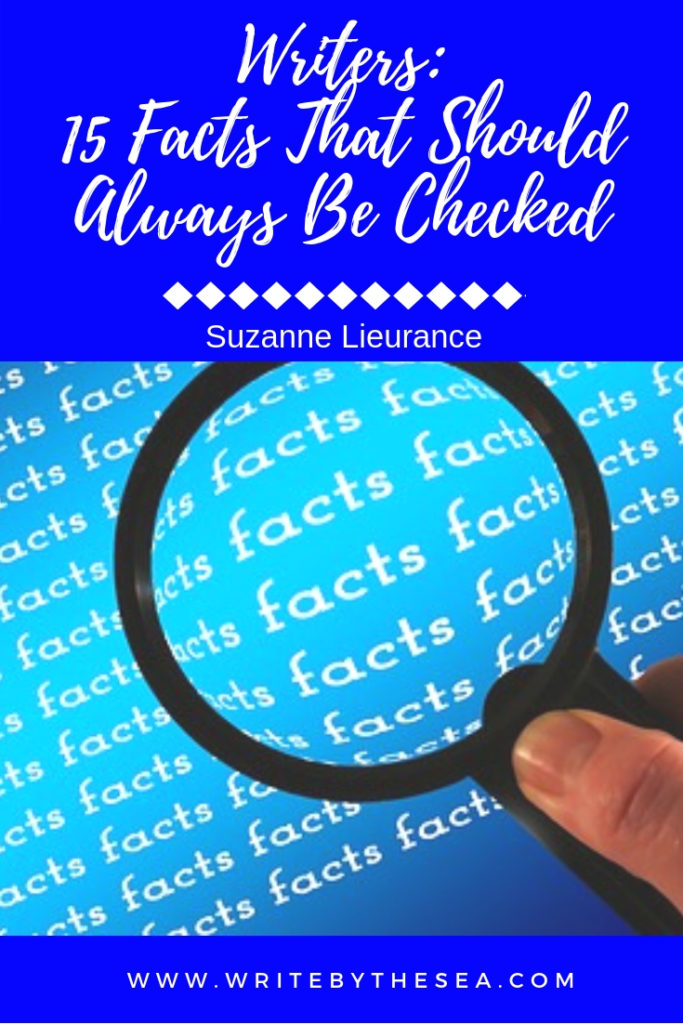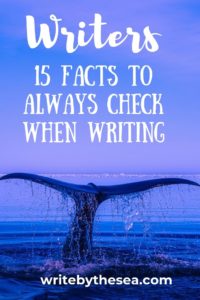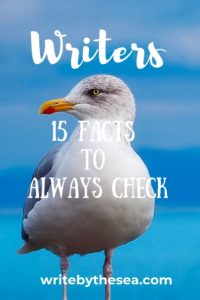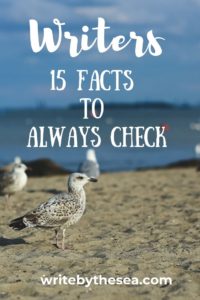Fact-Checking is just part of good writing.
And whether you’re writing fiction or non-fiction, you always need to be sure you get your facts correct.
Do not take this as a definitive list.
Instead, use it as a starting point and build upon it to ensure your writing is always correct and concise.

1. Dates
Whether recent or historical, if dates are mentioned, check that they are correct.
Even if you’re pretty sure they are correct, check them anyway.
2. Names
If a person’s name is mentioned, check the spelling.
For well-known people, you can easily look up their information online.
If you’re writing or editing for a client who mentions a local business person, see if you can find this person or business online.
If not, ask your client for the correct spelling.
3. Proper Nouns
Whether it’s a city, location or a business name, always check the spellings of all proper nouns.
You’d be surprised how many locations are misspelled.
4. Directions
This should be obvious, but you’d be surprised how often this information is incorrect.
For example, if something says Portland, Oregon is north of McMinnville, Oregon that information is incorrect.
Portland sits northeast of McMinnville.
In addition, check distance and travel times when including that information.
5. Calculations
If the content says man first walked on the moon 50 years ago, check it. 1969-2019 = 50
If a person’s birthdate and age is given, make sure you do the math to make sure that’s correct.
6. Links
If your content has a website URL in it, click the link and make sure it goes to the correct website.
Links are easy to mess up so always check them.
7. Number of items
If the title or introductory paragraph says there are 10 tips or 15 steps, count how many items are actually in the document.
For example, this article says it contains 15 facts to check.
Make sure there are 15 different facts listed.
8. Deceased/Alive
If you are writing about a deceased person, make sure this person is actually dead.
Don’t just assume so because you read a post on Facebook saying the person died.
On the flip side, if you’re writing about a person in the here and now, make sure they are still alive.
9. Quotes
Before using them, ask yourself if the quote makes sense.
Sometimes quotes are misprinted – either by accident or not.
In addition people will oftentimes drop the “not” in a quote making the meaning completely different than intended.
If it doesn’t make sense, don’t use it.
10. Events
Dates, times and locations should be verified.
Other events such as a crime or the passage of a law should also be checked.
You may need to check several resources to ensure the facts are correct.
Note: It’s a good idea to always verify any fact from at least 3 reputable sources.
11. Contact Information
Phone numbers, email addresses, physical addresses, mailing addresses, etc.
All of these can easily be looked up online.
If some of the information isn’t available, give the place a call and ask.
Places are happy to help ensure their information is correct.
Don’t forget to double check even your own information as typos are easy to make.
12. Superlatives
Before stating that something is the first or the biggest or the most expensive, make sure it really is.
13. Oddities
If something seems weird or doesn’t make sense, check it.
It’s always better to take a minute to ensure the information is correct than to assume it is and then look the fool.
14. Statistics
Always ensure you are pulling stats from authority sites.
Nothing makes one look more foolish than to unknowingly include incorrect stats to back up their point.
15. Recentness of facts
When researching topics that are constantly evolving like search engine marketing or social media, always check that the data you find is recent.
You don’t want to include outdated information in your content.
Additional Considerations When Writing Fiction
These 15 facts are just a few of the facts that should always be checked when you’re writing.
I find that when I’m writing fiction there are often many other facts that need to be checked.
For example, I once submitted a manuscript to my editor that had the main character wearing blue jeans at one point.
My editor kindly pointed out that blue jeans had not yet been invented at the time of my story.
Oops! That’s just one reason it’s so good to have a professional editor.
They often verify facts in your story that you didn’t even know you needed to check.
Read How to Survive as a Freelancer here!
And don’t forget to join our mailing list!
Just fill in your name and email address, below:









